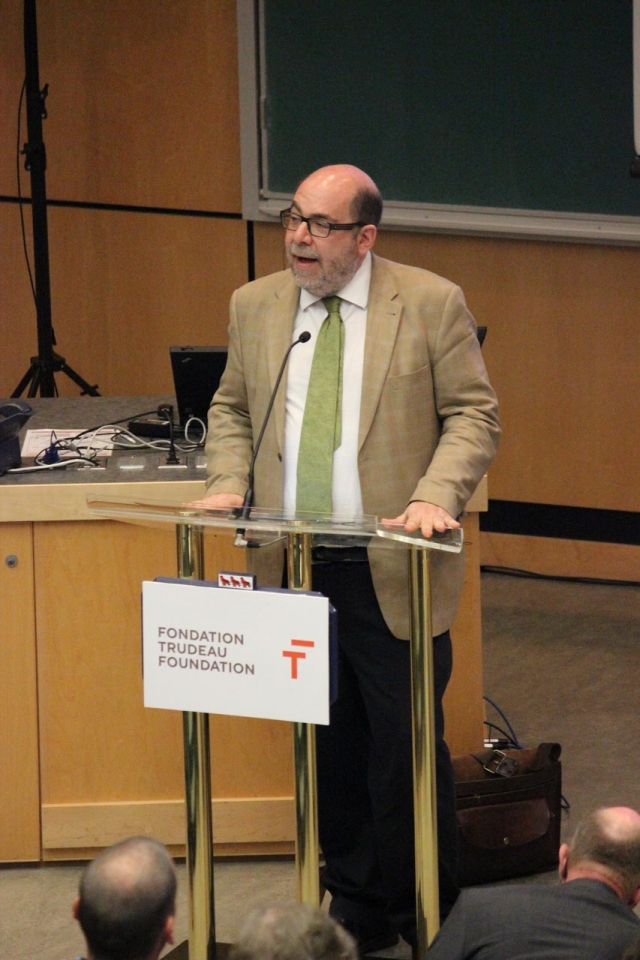Elizabeth White
Five days into Congress’s Big Thinking series we are met by the P-word - philosophy. It would be expected for its connotations – a dwelling in abstraction and removal from apparent worldly application – that the lecture would invite the attention of only a select few academics and powerful minds. But the academic and political reputation and innovative, socially impactful work of Daniel Weinstock, the MacDonald Professor of Law at McGill University, drew a full house of keen attendees to his reflexive and broadly relevant presentation, “So, are you still a philosopher?”
Through discussion of his theoretical and analytical approach, Weinstock introduced the audience to philosophy in action. In ideology and application, he actively and critically engages public policy concerning ethics and human rights. His approach invigorates and solidifies studies of socio-political philosophy, rendering them dynamic, accessible, and of cross-disciplinary relevance. But most importantly his work bears real world application and impact, critical in the contemporary sphere of social sciences and humanities, where theoretical academic efforts are increasingly called to answer, “…so what?”
Weinstock’s studies include a number of issues, such as the fissures in Quebec’s social and societal unity, euthanasia and assisted suicide, and the implications of cultural and religious expression in multinational societies. However, a significant aspect of his work’s contribution is the principle of “reconciliation of people and societies through reason”. This reaches beyond the particularities of his research, connecting his efforts to the broader academic sphere and their contributions toward social and political change.
Examining polarities in divisive socio-political issues illuminates the limitations of the normalized approach to resolution. Weinstock states that aiming for a pristine, singularly vocalized conclusion often demands the sacrifice of one’s values for another’s interests, and such a threat amplifies polarities and inhibits compromise. Instead he seeks “messy, workable compromises” where the integration of ideologies allows all positions to be expressed and encourages their unified but distinctive co-existence. Achieving this must begin with the reconstruction of discourse and cognitive frameworks, which the well refined tools of philosophical argumentation, logic, and pragmatics can facilitate. Weinstock asserts that theoretical refiguring and coalescence of positions is a necessary step toward resolving real world division and conflict.
Weinstock was an apt addition to Congress 2013’s diverse but integrated gathering of perspectives and considerations. His ideas present a means of connecting the typically abstract discipline of philosophy with its humanistically applied counterparts, and highlight the potential of “reconciliation through reason” across the humanities and social sciences. With wit and enthusiasm Weinstock dissected topics of serious moral consideration, offering a new perspective on the philosophical tradition and how its tools can be employed beyond its disciplinary confines. His discussion challenged the connotations of the P-word and invited a more accessible method of philosophy into our academic and professional pursuits.
Now, is Daniel Weinstock still a philosopher? Absolutely. His work is particularly relevant to the socio-political circumstances of our increasingly intercultural society, and his big thinking encourages a new approach to our interactions with one another in the academic and public spheres. By embracing the P-word and Weinstock’s notion of reconciliation through reason, we will surely come to realize that “…so what?” of socio-political philosophy and our efforts across the humanities and social sciences.

